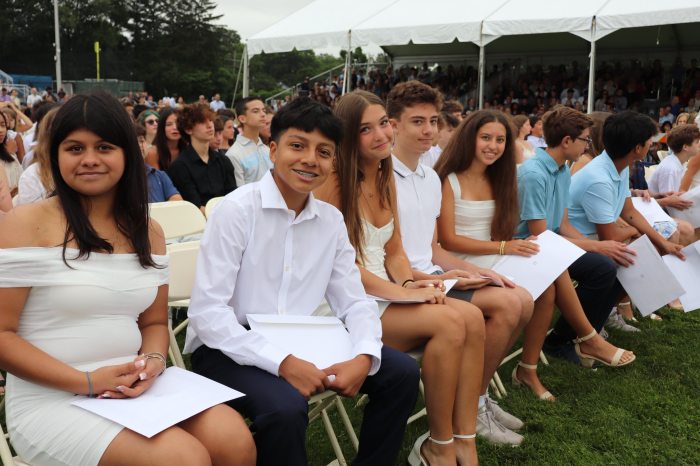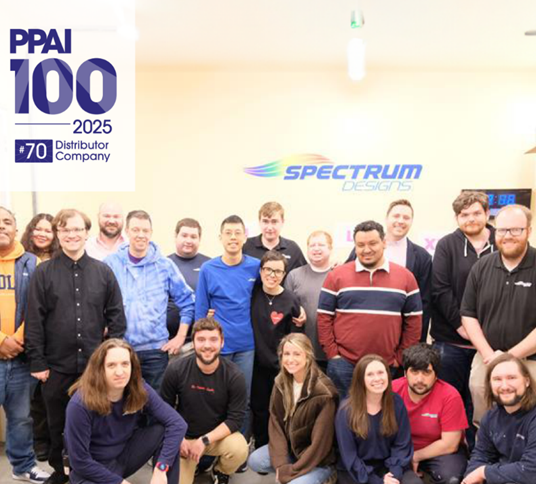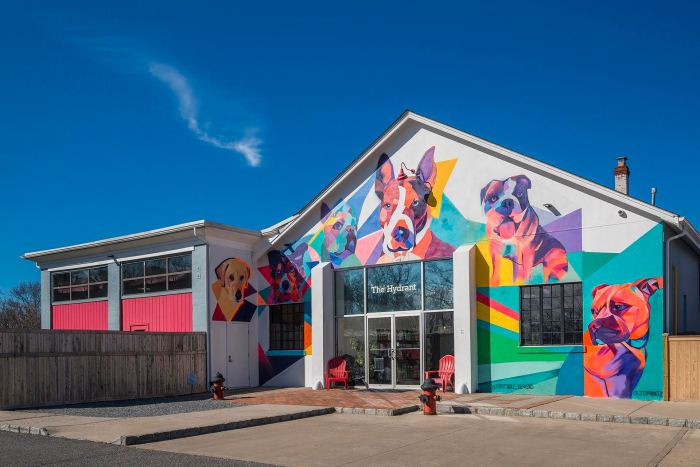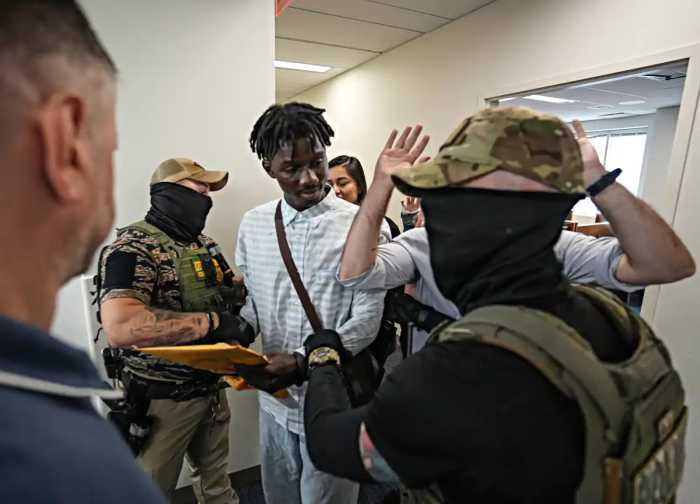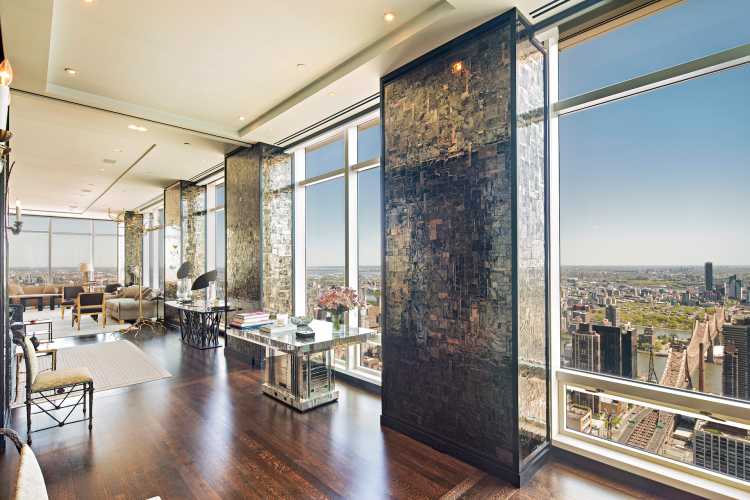 The Village of Flower Hill board of trustees met for its monthly meeting on July 2 to adopt two local laws and discuss road-related projects and the potential addition of 18 cell sites throughout the village.
The Village of Flower Hill board of trustees met for its monthly meeting on July 2 to adopt two local laws and discuss road-related projects and the potential addition of 18 cell sites throughout the village.
Local law G of 2018 was passed and it amends 85-5(F) “Building Construction” “Issuance of Permit” to state, “every major or minor construction permit, plumbing permit or demolition permit expires one year after issuance, unless there is sufficient reason to extend as determined by the discretion of the building superintendent with approval by the board of trustees.”
“We had something that would apply under this just last week,” said village administrator Ronnie Shatzkamer, giving an example of how the law would be used. “They’ve been building this nail spa at 1085 Northern Blvd. for over a year and their permit is going to expire at the end of the month and the only thing that’s holding him up from opening is the Nassau County fire marshal has not given his final inspection. This, we, felt would be the perfect type of application for this so Peter [Albinski] granted him four weeks to get that wrapped up rather than extending his permit and paying for a six month extension, he got a one month pending the fire marshal’s extension.”
The second local law passed, local law F of 2018, amends Chapter 114 “Exhibition and Shows.” The local law permits exhibition lighting upon application by the owner of the property detailing a description of the proposed exhibition lighting. The local law allows the board to impose restrictions and conditions to the exhibition, including hours of operation.
When submitting the application, the applicant will also deposit a sum of $500 with the village administrator. The law also states that each applicant will be liable for any costs incurred by the village as a consequence of the application including advertising, stenographic minutes and legal fees and consultants. The only line changed from the previous meeting’s reading is under C1 “Conditions and fees upon grant” of the law and states, “fees shall be in accordance with Chapter A243 ‘Fees, Charges and Deposits,’ or as determined by the board of trustees by resolution based upon the estimated costs to be incurred by the village with respect to the proposed event.”
“The last change was made to address concerns that the village could be charging more than the actual cost of the event,” said trustee Brian Herrington. “It wasn’t supposed to be a money raiser. It was just for the village to cover some of the costs incurred by the taxpayers. I think that was pretty fair and it will accurately reflect what we’re trying to do. I think overall we’ve made a lot of progress on it and I’m hopeful that it will help the community.”
Also approved during the public hearing was the installation of a generator on the roof of the Mobil located at 1021 Northern Blvd., with the condition that building superintendent Peter Albinski review the site.
“It is being encouraged by the state, so in an event of a blackout, there is gas available,” said Shatzkamer.
Regarding roads, the board awarded the 2018 road project bid to the lowest bidder, American Paving and Masonry, Corp., at $347,396. The board also discussed the potential restriping of two crosswalks—one on Stonytown Road and one in front of village hall—and the bike path on Stonytown Road. The board also expressed that they had not heard back from any of the elected officials they reached out to regarding the proposed bike path for Port Washington Boulevard, and that they will keep trying.
“Middle Neck Road, Ronnie spoke with [the county] about a week ago,” said Mayor Robert McNamara. “They’re still studying the one drain problem and Ronnie asked ‘could we see the plan’ and the plan is going out for bid so they can’t let us see the plan until the bid is awarded. When the bid is awarded, we’ll know what they’re doing.”
The board also discussed their review of ExteNet, a company that designs, builds, owns, manages and operates indoor and outdoor distributed networks to help meet the growing demand for improved mobile and wireless broadband coverage and capacity.
“They’re proposing 18 cell sites,” explained Shatzkamer. “We’re just at the beginning of the process now. Most of them will be going on existing poles, a few poles will have to be moved. They’re going to give us poles that have all the radio wires and such in the poles so all you’re going to see is the pole.”
“Two things I learned from it are these are alternatives to large cell towers going up,” said Herrington. “This is how they’re trying to create the new network, the faster network. When I think about what the alternative could be, another big, ugly cell tower in the area, I think it’s a good alternative. They have the ability to put multiple providers on it too so it’s not just one provider, all of them can go in there. What we learned is we have to make some updates to our village code because of it.”
Shatzkamer introduced local law H of 2018 regarding an amendment to Chapter 235 “Wireless Telecommunications Facilities” to be further explored at the public hearing set for Aug. 6. McNamara explained that ExteNet will come before the board to make a public presentation at an upcoming meeting during the process.
“I worked really hard on taking our current law, which addressed cell towers because that was the only technology available at the time the law was written and merging it with Syracuse’s law but edited to suit our village’s needs,” she said. “I want to be thorough before we get into serious negotiations with ExteNet so we can say here are our rules and regulations. You have to abide by these that were adopted by our board.”






